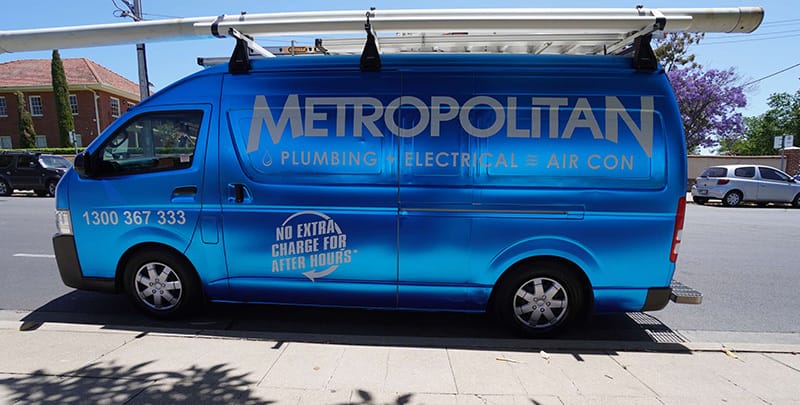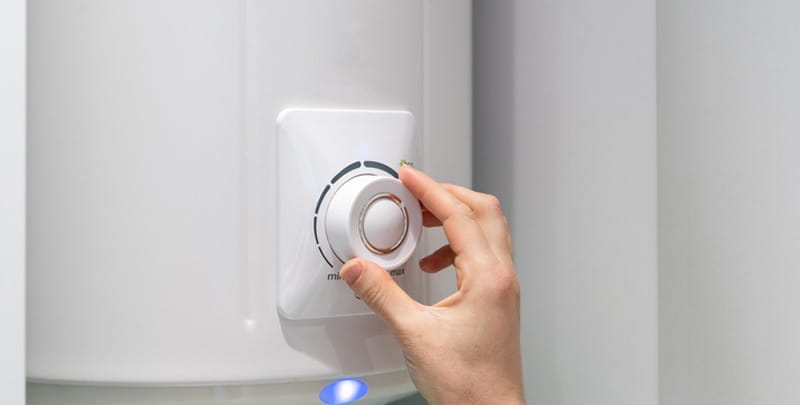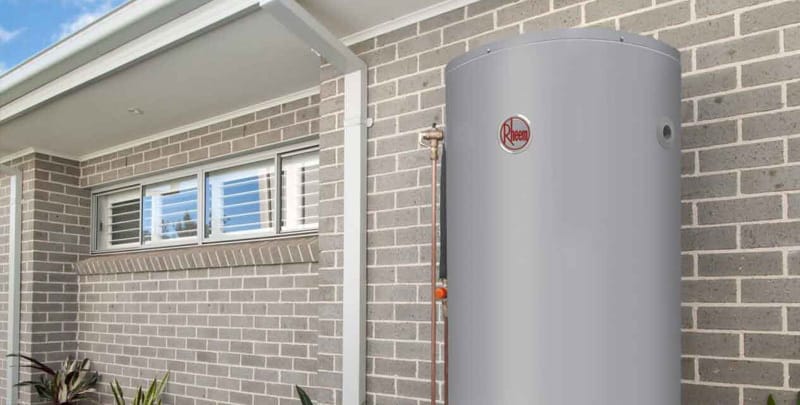
Does Electric Hot Water Work for Your Home?
In your everyday life, the hot water system is one of those things you really appreciate when it’s running smoothly and curse when it goes wrong.
Nothing like a cold shower first thing in the morning to shock you wide awake, eh?
What’s a Hot Water System?
So, for a bit of chit-chat, a hot water system is a device that heats water for your home. Also known as a water heater, it is a household appliance designed to heat and store water.
It plays a crucial role in providing a consistent supply of hot water for various home uses such as bathing, washing dishes, doing laundry, and several other tasks.
The complexity and functionality of these systems make hot water readily available and provide comfort and convenience to residential and commercial establishments.
Sounds simple, right? But within this basic definition, there’s a variety of different types. Let’s learn more about electric hot water systems, as well as their gas and solar counterparts.
All Shapes and Sizes
Hot water systems come in all shapes and sizes, from solar hot water systems and electric hot water systems to gas hot water systems, and even heat pumps, each with its own facets to consider.
- Electric hot water systems: Often termed the workhorse of the hot water system world, the classic electric hot water system is a popular choice in many Australian homes. It works by using an electric element to heat a cold water supply, which is then stored in an insulated tank for on-demand use.
- Gas hot water systems: Gas systems use a gas burner to heat a supply of cold water. These systems offer quick recovery times, ensuring you have hot water when you need it. They can use natural gas or Liquefied Petroleum Gas (LPG), and are typically cheaper to operate than electric systems.
- Solar hot water systems: These systems use the sun’s natural energy to heat water. They are commonly supplemented by a gas or electric booster for days when sunlight is limited. Solar systems are extremely energy efficient, making them environmentally friendly and cost-effective in the long term.
- Heat pump hot water systems: Heat pumps work similarly to an air conditioner but in reverse – they extract heat from the ambient air and use it to warm up your water. Even though a heat pump system uses some electricity to operate, the energy required is much less than that of a conventional electric water heater.
- Geothermal hot water systems: Although less common, some homes use the consistent temperatures underground to heat and cool their homes. These systems use a heat exchanger to transfer heat from the earth to the water in the home.
- Tankless or instantaneous hot water systems: These systems only heat water when it’s required, resulting in energy savings as no heat energy is wasted maintaining a body of stored water at a high temperature. These systems can be fuelled by gas or propane.
- Indirect water heaters: Indirect systems use the main furnace or boiler to heat a fluid that circulates through a heat exchanger in the storage tank. The energy stored by the heat pump water heaters’ tank allows the furnace to turn off and on less often, which saves energy. They can be used with gas, propane or oil-fired boilers.
Each type of system has its own advantages and disadvantages. The best choice depends on various factors such as local climate, utility costs, initial budget and environmental impact preferences.

How Does a Hot Water System Work?
Alrighty then, let’s delve a bit into how a hot water system works. It’s quite an intriguing tale involving a gallant water heater playing its part in ensuring your comfort. This process can vary; we’ve got tank systems, tankless ones, gas storage systems, and hot recirculation systems too.
Imagine a tank’s hot water system like a knight’s sturdy metal shell – only it’s not meant for fighting dragons, but for holding around 40 to 60 gallons of hot water.
This mega kettle sits comfortably at a pressure of 50 to 100 pounds per square inch, similar to your typical house water pressure range. The water is right there, ready to get to work the moment you turn on the hot tap.
Hot water recirculation is another fascinating story where your house’s water has a ‘Hamster Wheel’. This system creates a merry-go-round-like path from the hot water heater to your tap.
The hot water that doesn’t get used isn’t wasted- it loops back for reheating. It runs round and round, all set and steaming for when you need it next!
Then we have the tankless water heaters or the seemingly magical hot water circulation systems. Like a stage magician pulling rabbits out of hats, these systems whip up warmth with heating elements that happen to be part of the building.
In nifty, single-room scenarios, pipes split out from the boiler and lead to these elements. There’s no wait – hot water, fresh out of the oven, on demand!
But how do we get this hot water from its source to the tap, you ask? Picture a majestic mountain spring flowing down, eagerly making its way to lower ground.
In a similar exciting journey, when hot water is needed at a tap or appliance, it gets pumped from the top of the tank and through your home’s hot-water supply pipes.
Thus, warm, comforting hot water arrives at your tap, making your morning showers, dishwashing, or any hot-water-needing task a breeze!
Hot water systems are designed to get you hot water whenever you yearn for it, making your wait shorter and life easier. Amazing, ain’t it?
Choosing a Hot Water System: Electric or Otherwise
So, which is the right hot water system? Considerations for choosing a hot water system span beyond the initial cost.
Factors like energy efficiency, how much an efficient hot water system your household uses, cost-effective running, the climate, and even environmental impact all play a role.
-
Sussing Out How Much Hot Water You Need
You’d reckon this would be a cinch – just count the number of people in your house, right? But, it’s a touch more intricate. How much hot water is needed can fluctuate over time. Will you have guests over the holidays? What about additional family members in a few years? All crucial to consider.
-
Gas Systems vs Electric Systems
To keep costs low, gas systems typically rise to the challenge. However, electric systems aren’t as expensive as you might imagine. Plus, with the current trajectory of natural gas and electricity prices, it might be wise to keep an eye out for shifts in costs, leading to higher running costs.
-
Energy Efficiency is Key
Minimum energy performance standards (MEPS) are mandatory for all electric hot water systems in Australia, reducing environmental impact, and keeping those pesky energy bills in check. Despite this, the efficiency of hot water systems can vary, so picking the right one could save you a pretty penny.
-
The Question of Off-Peak Electricity
Off-peak electricity rates permit for more cost-effective running of electric hot water systems. These rates apply during the night, allowing you to store enough hot water for the next day and save on your energy costs.
-
Consider the Running Costs
Continuous flow systems have lower running costs compared to traditional hot water systems. This is because a continuous flow system doesn’t require a storage tank, minimising heat losses from the tank. Plus, you’ll have an endless supply of hot water!
-
Thinking About the Environment?
Continuous flow systems and heat pumps are more efficient than traditional hot water systems, resulting in less greenhouse gas emissions. Solar hot water systems are even better, bringing down emissions to nearly nothing when backed up by solar photovoltaic (PV) or heat pump systems.
Check Out the Electric Hot Water Systems
Researching electric hot water systems could keep you busy for a while! There’s a huge range from leading brands, with an array of benefits and features, available at very competitive pricing.
-
Electric Storage Hot Water Systems
You’ll have bundles of options in electric storage styles, capacities, and sizes, suitable for all sorts of households. Important to gauge the right fit on how much hot water your house requires and the available space for the hot water tank.
-
Electric Instantaneous Water Heaters
As for electric instantaneous water heaters, also known as continuous flow systems, they heat only as much water as you need, resulting in higher efficiency and lower greenhouse gas emissions.
How About the Non-Electric Hot Water Systems?
Non-electric hot water systems are a fantastic alternative for Aussies looking to save on energy expenses. You’ll typically find two types on the market – gas and solar hot water systems.
Gas systems are popular due to their efficiency and ability to supply hot water quickly. They’re perfect for larger households and operate ideally even on cloudy days.
Solar hot water systems, on the other hand, use solar-collected heat from the sun to warm the water. While the initial costs may be high, they are a prime choice for those committed to environmentally friendly solutions and long-term savings.

Deciding on the Best Hot Water Heater System
When it comes to deciding on the best hot water heater system, the right choice depends on your specific circumstances. Remember, the right hot water system isn’t about the cheapest or the most expensive. It’s about what works perfectly for you.
Regardless of your own requirements, make sure to seek expert advice on the best hot water heater system for your home before making a decision. Here are some of the perks of having one:
- Expert knowledge: Professionals are well-versed in different types of hot water systems. They can guide you on appropriate models that best meet your needs and preferences. They have a deep understanding of how systems operate, their energy efficiency, and their expected lifespan.
- Correct installation: A hot water system, especially a solar hot water system, requires careful installation. The wrong move can lead to inefficiencies, malfunctions, or safety hazards. Professionals guarantee a proper installation that adheres to industry laws, safety standards, and the product’s requirements.
- Safety assurance: Hot water systems often involve the handling of electricity, gas, and plumbing. Without expertise, it can pose serious risks. Qualified professionals have received extensive training to handle these situations safely.
- Cost-efficiency: While you might incur charges for their services, a professional can save you money in the long term. They ensure the smooth operation of your system, helping prevent potentially costly future repairs and replacements. They can also provide advice on more energy-efficient models, which can lead to significant savings on utility bills.
- Maintenance and repair: Professionals don’t just install hot water systems. They maintain and repair them as well. Regular inspections and prompt repairs help extend the lifespan of your system, ensure that it’s operating at top efficiency, and keep your warranty intact.
- Building code compliance: Professionals are aware of local building codes and regulations when installing a hot water system. This ensures your installation is up to code, avoiding legal trouble down the line.
- Convenience and time-saving: As professionals handle everything from installation to maintenance, you can free up your time for other tasks.
- Reliable sourcing of equipment and parts: Professionals have connections to reputable manufacturers and suppliers to acquire reliable and high-quality hot water system equipment and parts.
- Peace of mind: Professionals provide you with peace of mind that your hot water unit is working at its best, and that you have someone to call if it doesn’t. It eliminates the stress of dealing with possible breakdowns or ineffective heating.
Hiring professionals for your hot water system ensures you have experts to guide you through the decision-making process, install and maintain systems, comply with regulations, and provide safety assurance, leading to a better, stress-free ownership experience.
The Future Of Electric Hot Water Systems
The future is bright for electric hot water systems. With massive advancements in heat pump technology, and potential shifts in utility prices and governmental regulations, an electric hot water system could very well be the perfect system for your home.
Always remember, that each aspect of your new hot water system should be carefully considered. So, take your time, eh?
With a blend of smart technology, forward-thinking, and careful selection, let’s make every shower and dishwashing adventure a hot and satisfying experience.
Please note: This information is provided for advice purposes only. Regulations differ from state to state, so please consult your local authorities or an industry professional before proceeding with any work. See our Terms & Conditions here.
Published: 27 Nov, 2023